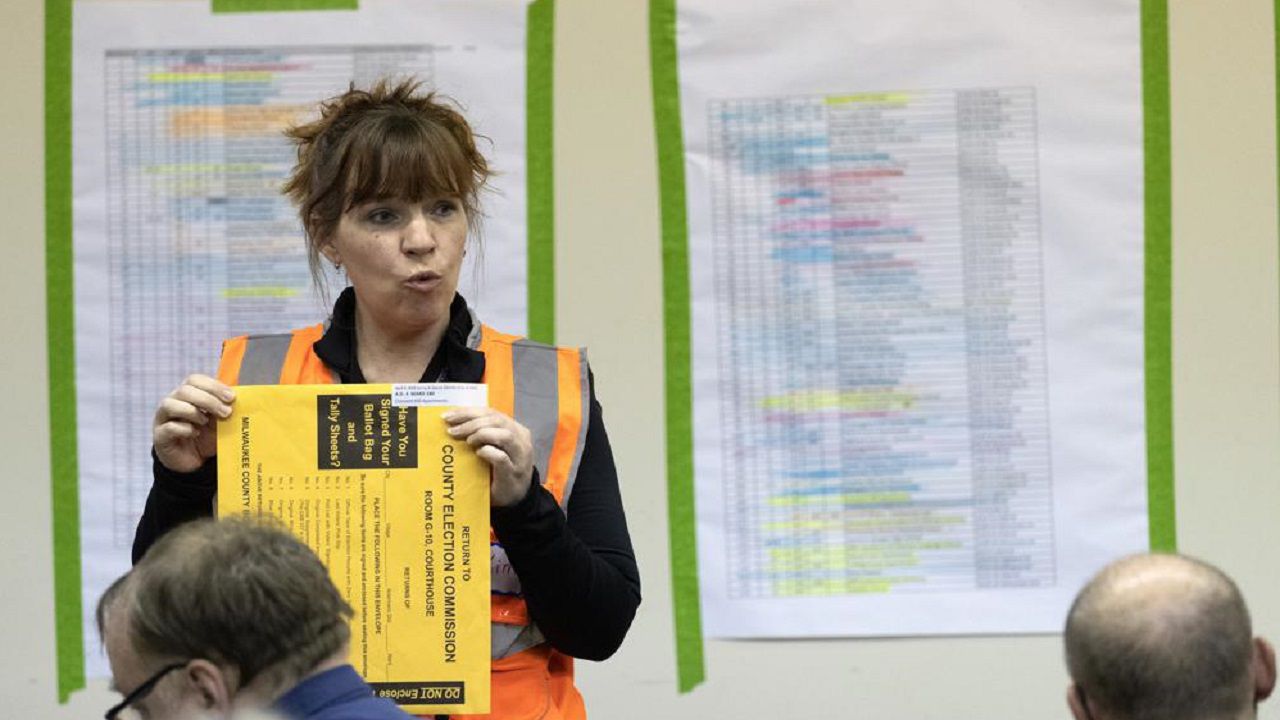MADISON, Wis. (AP) — A former Milwaukee elections official charged with fraudulently requesting three military absentee ballots under fake names and sending them to a Republican lawmaker who embraced election conspiracy theories told investigators that she did it because she was tired of being harassed over outrageous arguments and wanted to shift attention to real flaws in the election system.
Kimberly Zapata, the former deputy director of the Milwaukee Election Commission, went on trial this week in Milwaukee on multiple charges, including felony misconduct in office and three misdemeanor counts of making a false statement to obtain an absentee ballot.
According to the criminal complaint, a week before the Nov. 2022 election, Zapata fabricated three names with fake Social Security numbers and requested military absentee ballots in those names through MyVote Wisconsin, the state’s voter database. Zapata told investigators she used her government access to MyVote Wisconsin’s voter registration records to find state Republican Rep. Janel Brandtjen’s address and had the ballots sent to her Menomonee Falls home, the complaint said.
Zapata's trial began Monday in Milwaukee. Prosecutors on Tuesday played in court a recording of an interview Zapata gave to investigators before she was charged. She said commission staff were overwhelmed by death threats from election conspiracy theorists leading up to the 2022 election and she was dealing with the death of her brother at the same time.
She became “fed up” and early on the morning of Oct. 25 requested the fraudulent ballots and sent them to Brandtjen in hopes of shifting her attention to real loopholes in the system. She said she knew Brandtjen would never cast the ballots and didn't think her actions would hurt anyone.
“I had them sent to Janel Brandtjen because I wanted to make a point of how there is fraud out there,” Zapata said during the interview. “It’s not what everybody is reporting with all the conspiracy theories but there are loopholes. I wanted to bring it to someone’s attention so it could be addressed ... It's [the threats] just overwhelming. I just wanted the truth to come out.”
Brandtjen has advocated for decertifying President Joe Biden’s 2020 win in Wisconsin and has espoused conspiracy theories supporting her position.
Zapata's attorney, Daniel Adams, pointed out to the jury that she was in a small conference room with four men and felt pressured during the interview.
Earlier Tuesday the election commission's executive director, Claire Woodall-Vogg, testified that she found Zapata to be a political neophyte fixated on gaps in the election system.
She told Adams that Zapata doesn't follow politics or current events. She said Zapata sees the world in black-and-white terms and if something doesn't make sense “she will hound you until it does.”
Woodall-Vogg also testified that the commission received constant threats over a two-week period in Aug. 2022, including a message saying the staff should go before a firing squad. She said staff rearranged their office after someone sent them a map of their workstations that staff interpreted as an attack blueprint.
Assistant District Attorney Matthew Westphal argued that if Zapata was stressed, her actions only created more stress and injected more false information into the election process.
Zapata told Judge Kori Ashley that she won't testify on her own behalf. Closing arguments were expected Wednesday morning.
Wisconsin's election and voting laws have been in the spotlight since Biden's 2020 victory, which came under attack from former President Donald Trump and his supporters who made unsubstantiated claims of widespread voter fraud. Milwaukee, home to the largest number of Democrats in Wisconsin, has been a target for complaints from Trump and his backers.
The trial comes two weeks before Wisconsin’s April 2 presidential primary. Wisconsin is once again one of a few battleground states crucial for both sides in the November presidential election.
Brandtjen faces her own legal troubles and will not be called to testify. The Wisconsin Ethics Commission last month recommended felony charges against Brandtjen and a fundraising committee for Trump related to alleged efforts to evade campaign finance laws during an attempt to unseat GOP Assembly Speaker Robin Vos.
Zapata was fired after her actions came to light. She faces up to five years behind bars if convicted of all four counts.



